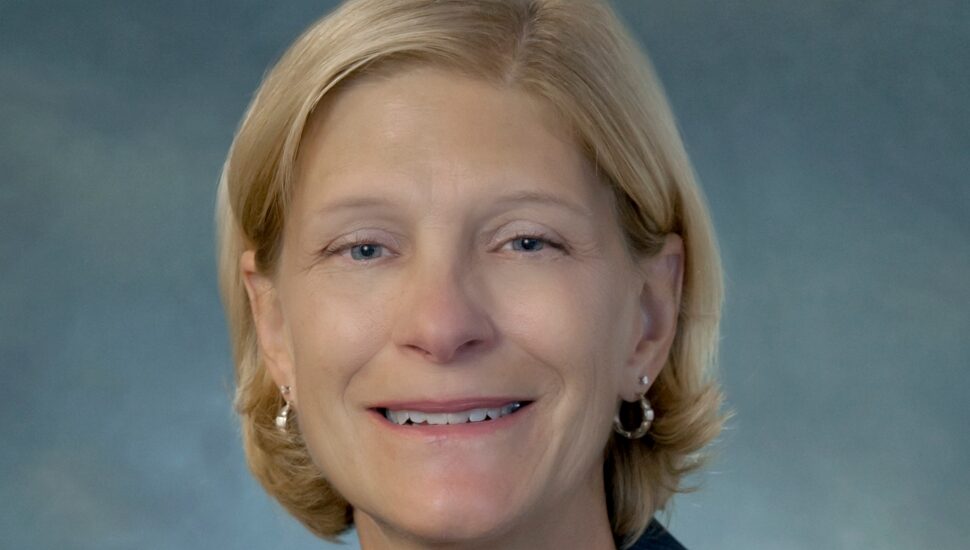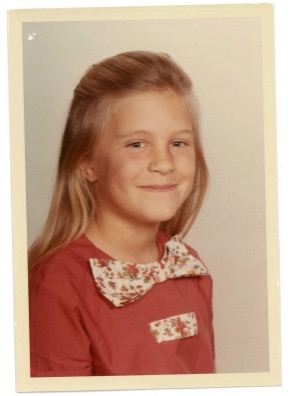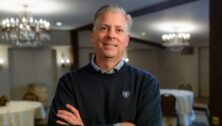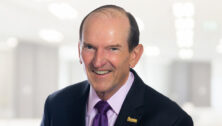Bucks County Leadership: Beth Duffy, President and COO of Einstein Medical Center Montgomery


Beth Duffy, President and Chief Operating Officer of Einstein Medical Center Montgomery, spoke with BUCKSCO Today about growing up in Southampton, her early jobs, and why she believes everybody should work in a fast food restaurant at some point in their lives.
Duffy went on to explain her career path from wanting to become a physical therapist to getting a degree in social work to finding her way to hospital administration. She talked about why she’s stayed at Einstein for her entire career and what’s in the hospital’s future after merging with Jefferson last year.
Where were you born and where did you grow up, Beth?
I was born in Camden, New Jersey as the middle child in a traditional working-class family. I spent the bulk of my childhood in Southampton, Bucks County.
What did your parents do?
My dad was a self-employed salesperson who sold everything from golf carts to loading docks, and cars. My mom was a stay-at-home mom who later on became a bookkeeper when we were able to be home by ourselves after school.
What memories of growing up in Southampton stay with you even today?

I think I had a pretty normal childhood. I was lucky enough to grow up in a good neighborhood, my best friend lived next door, and I usually walked, rode my bike, or roller-skated to school every day. I only started taking the bus when I began high school, which was not considered unusual.
I was involved in activities to the extent my parents could support and more importantly, transport us. We only had one car growing up and my dad needed it for work, so we ended up walking a lot — I used to walk to the dentist, to softball, to brownies — it’s just what I did.
Did you play any sports growing up?
I was a Girl Scout until I was in high school; I still have all my regalia, the hats, and all the badges with me even today. Being a Girl Scout was a lovely experience since it was a great way to learn values. I met a lot of people outside my usual groups.
In terms of sports, I played recreational sports (softball and tennis), but I wasn’t very good at any sport. I do greatly enjoy watching sports though even today. However, today the sports that kids have is just amazing to me. Sports options for girls were pretty limited when I was growing up but today girls have so many more opportunities which I think is great.
What jobs did you have in high school? Did your parents allow you to work?
They didn’t allow us, they told us that we had to work. My very first job was in the local pharmacy as a cashier. I started when I was 16 and was able to work my way up to become a pharmacy technician. It was a ‘mom and pop’ pharmacy and they paid us under the table.
In college, I worked in a fast food restaurant, Arby’s. I believe that everyone should have the opportunity to work at a fast-food chain at some point. You are working with people, it’s a service industry that can be high-intensity at times, and you learn great skills. Reflecting on that, working at Arby’s was a great experience for me.
What life lessons did you take from those part-time jobs that still stay with you today?
It taught me there is a chain of command that I needed to navigate to get results. I also learned it feels good to work hard. I always enjoyed working with people and that’s probably why I ended up in the field I am in because I’m very much a people person and I like helping people.
What kind of music floated your boat? Did you play any instrument?
I was never really a music person; I never listened to the radio. I think I bought my first record when I was in college. It just wasn’t my thing. I did try the violin for a brief time but that quickly ended.
Where did you go to college, Beth?
I went to the University of Pittsburgh. I wanted to be a physical therapist and at that time only the University of Pittsburgh and Temple offered that program. I chose Pittsburgh because I wanted to experience living away from home.
Neither of my parents were college graduates and the process of college entrance was much different back then as compared to what it is now — now the process starts very early.
Looking back, was Pitt a good choice for you?
It was a fabulous choice for a couple of reasons. It taught me so many life skills. I have always believed that the value of a college education isn’t really in academic learning, it’s in life skills learning. It’s learning skills such as decision-making, time management, budgeting, financial management, learning how to deal with conflicts, etc. so for me it was very much a life learning process.
I ended up not being a physical therapist after all; I did not do well in my freshman chemistry class. You know those entry-level courses you had to take! I went to my chemistry final exam, all prepared with a new battery in my calculator but when I got to the exam, I found out that the battery was dead and my backup was a slide rule — which I never learned. So I didn’t do well in the finals and did not meet the requirements for the School of Physical Therapy.
So I went on a different path and decided to pursue a degree in social work, which has served me so well. Sometimes things happen for a reason which was an important life lesson.
Looking back over your career, who were the people who saw promise in you, Beth?
Certainly, my family — they were very supportive of me. As I said, they weren’t college graduates, but they were very wise. They gave me lessons like, “If you decide you’re going to do something, you’re not permitted to quit.” My dad used to say, “There are three things that you need to keep your eye out for — your health, your happiness, and your success — in that order.” I never really understood that until I got older. My husband and children are my greatest supporters, always allowing me the opportunity to succeed.
I didn’t have a mentor until I had my first real healthcare job. I graduated with my degree in social work and I was eager to save the world. I tried to find a job in social work in 1982, but social programs were being cut and I just couldn’t find anything. And, for social work, I needed to go back and get a master’s degree.
So I spent some time thinking about what I wanted to get my master’s in. I knew I wanted to do healthcare — I knew that from an early age — and I was looking through a career book at the library and I saw “hospital administrator.” I didn’t know what a hospital administrator did, but I knew I wanted to work in a hospital. I had volunteered in hospitals from when I was in middle school up through college.
What was it about the hospital environment that drew you in?
One was the busyness of the hospital setting. Another was helping people; it doesn’t matter what job you have in the hospital, you’re helping people. I applied to Temple and I got accepted into their MBA program with a focus on healthcare administration.
What did you do after you graduated?
I started to apply for jobs and go on interviews, including one at this hospital called Albert Einstein Medical Center, which I had never heard of, for a job called a unit manager. As a unit manager, I was the business partner with nursing leaders on three or four nursing units. I got to do all of the non-clinical things — supplies, managing the non-clinical people, taking care of the environment, planning programs, and problem-solving.
That’s a lot of responsibility.
It was but I learned so much about hospital operations. I was laid off after I worked there for six months, and then I was brought back to be the administrator for the emergency department.
I loved that job. I loved the busyness and the crisis management and the immediate problem-solving. I helped start the trauma program and the residency program there. Then I just worked my way up and stayed with Einstein.
Probably the most frequent question I get asked is, “Why did you spend your whole career at one place?” It’s so unusual that a person like me would spend her entire career working for one health system. The mission of this organization just resonates with me. It’s been a lot of hard work but it’s also been a joy.
Who were your mentors who saw promise in you?
There were a couple of people. When I was at Temple, I did an internship at Jeanes Hospital in northeast Philadelphia. I met a woman there, Dory Gretzinger, who showed me that there could be a female leader of a hospital. I only worked with her for a couple of months, but she sticks with me. She was my first mentor.
At Einstein, I had the privilege of being promoted to assistant to the General Director. The General Director at Einstein was the Chief Operating Officer. Her name was Susan Bernini. Susan took me under her wing and showed me everything about running a hospital. Susan was great to work for.
More recently, our past Chief Executive Officer, Barry Freedman, gave me the opportunity and had faith in me to come out to Montgomery County to help build and activate Einstein Medical Center Montgomery where I’m at now. We’ll celebrate 10 years in September!
When did you first notice you had leadership potential, Beth?
I would say I first noticed I could lead in the first job that I had at Einstein. I was a manager, and people were coming to me, asking me questions and expecting me to have the answers. That is when I first experienced leadership. I just loved being able to provide guidance and input into decisions that were going to be impactful to people. That was a huge learning experience because up to that point, I would say I was shyer and not very assertive.
As we head into the second half of 2022, Beth, what are your priorities and opportunities you are focused on?
We merged with Jefferson in October. That represents a wonderful opportunity. We’re leveraging the skills, talents, programs, services, and processes that Jefferson has in place. I think it’s going to allow Einstein Montgomery to continue to grow and serve this community. That’s what we’ve tried to do over the past 10 years, and honestly, we’ve been hugely successful. Nobody ever envisioned the hospital being where we are at the 10-year point. That is because of the great staff that works here, but also the community.
Our community embraced us, and I can’t thank them enough. It’s been a partnership. They would tell us what the community needed regarding healthcare services, and we delivered on those requests.
I think the future here at Einstein Montgomery is extremely bright. We’re now a part of a large healthcare enterprise that has quality and safety as its primary focus. The mission of Jefferson is very equivalent to the mission of Einstein, which as I mentioned is what helped me stay in one place for so long.
The people who work here are amazing, amazing people. The last two and a half years have been incredibly hard, there’s no doubt about that. We have asked people to stretch in ways that we never would have asked people to do before, and they stepped up to the plate. That’s a reflection of their resiliency and commitment and dedication.
Any new initiatives planned or services you’ll be offering?
We’re going through a process now with our colleagues at Jefferson to figure out what are the next things for Einstein Montgomery. We’ve had some integration work that we’ve had to do on the corporate services side with our IT systems. I think we’re through most of that now and we can start to focus on the program planning. We’ve had a lot of great initial discussions.
It seems like Jefferson, Einstein, and Abington have already become an integrated health system.
To Jefferson’s credit, they’ve done this a couple of times, so when we came in, I don’t think it was as painful for us. They had the processes down, they knew what some of the pitfalls were. I’ve done a lot of integrations, and this has gone very smoothly.
What do you do with all your free time, Beth?
I love to garden — that’s a passion of mine and my stress reliever. I try to play golf, but I’m not very good at it. I love to travel. Our oldest daughter got married in New Zealand in March of 2020, so we were actually in New Zealand when the pandemic hit. It was fascinating and a bit of a nerve-wracking experience to be in a foreign country knowing that maybe you weren’t going to be able to get home.
I have a trip to Nova Scotia planned for later this month, and we just booked a trip to the Galapagos Islands for December. And we just had our first grandchild, so I spend as much time as I can with her.
Do you read much?
I love to read. The problem with reading is, that I can’t read more than a page before I fall asleep. So I’ve picked up audiobooks. I go through about a book a week while I’m driving or going for walks. I absolutely love it. Right now, I am listening to The Seven Husbands of Evelyn Hugo by Taylor Jenkins Reid.
In this Crazy world, Beth, What gives you hope?
The people that I surround myself with, whether that’s here at work or home with my family and friends. Knowing that I have people who will support me and I will support them allows me to remain optimistic.
I don’t think what we’re going through now, although the issues might be a little different, I don’t think it’s worse than what this country has gone through before. We always find a way to get through it, because that’s what we do as people.
The other thing I always say to myself when something has me worried or upset is, you know, I’m worried or upset today, but tomorrow it could change 180 degrees. Maybe I’m dreading making a speech, but that speech is 30 minutes in a 24-hour day in a seven-day week, and nobody’s even going to remember it two weeks from now. So, what am I getting myself worked up about?
Finally, Beth, what’s the best piece of advice you ever got?
I’d have to go back to my parents. I never ended a conversation with my dad without him saying, “Keep smiling. It’ll be okay.” My mom is one of the strongest people I know. She is 97, fiercely independent, and has always believed in me.
Connect With Your Community
Subscribe for stories that matter!
"*" indicates required fields





























